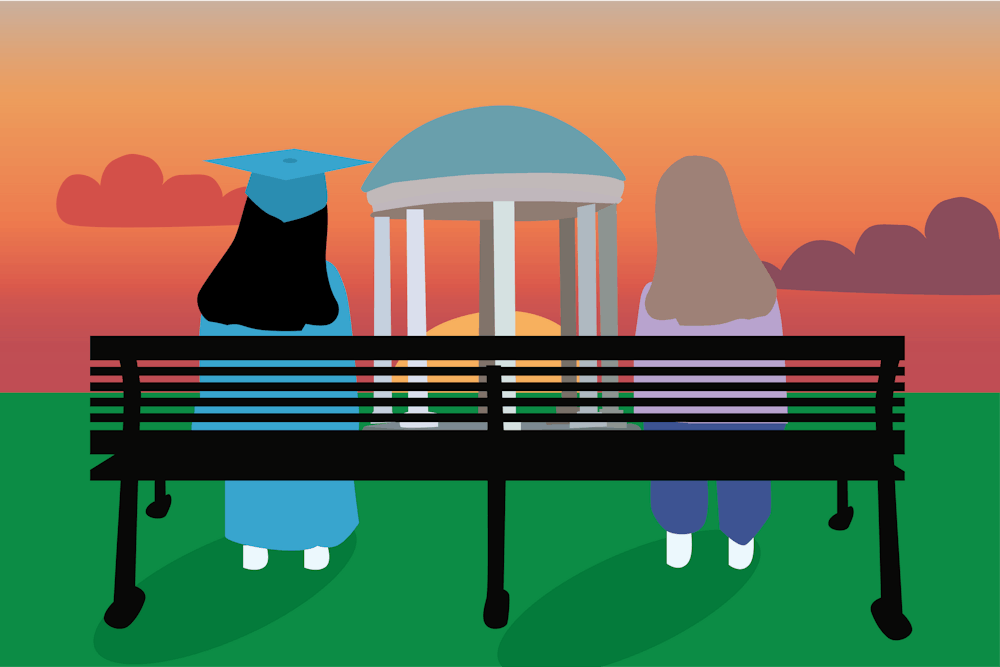I recently overheard one of my peers mention that they felt no obligation to provide any sort of mentorship or advice to underclassmen at UNC. This individualist sentiment isn't unpopular — at the end of the day, we're just here for our own degree, right?
Of course the senior in your racquet sports Lifetime Fitness class doesn't want to talk to you — this semester is all that's standing between them and their dream consulting job at Deloitte. And obviously, you aren't going to talk to the overeager first-year in your multivariable calculus class. Wow, you took AP Calc AB and BC in highschool? That's so cool.
Divisions by graduating class are a natural outcome of the four-year degree system; they're an efficient structure guiding students to their finish line. However, the constant cycle of graduation creates a systemic barrier to building intergenerational community at UNC, robbing future generations of institutional knowledge and the ability to use this experience to implement long-term community goals.
Student-led organizations, clubs and government are key community pillars that are especially threatened by constant student turnover. UNC has hundreds of student-run organizations, many of which are community service oriented. Usually, they're led by sophomores, juniors or seniors, who are wells of institutional knowledge, including practical experience in operating club activities, maintaining relationships with outside organizations and navigating interactions with administration.
Unless proactive effort is made to ensure that knowledge is passed down to new organization members, this expertise and experience is lost, leaving the UNC community without the resources and connections that the organization depends on.
This problem is compounded for clubs that implement long-term goals that take more than four years to come to fruition. A loss of institutional knowledge forces future generations to retread old mistakes, navigate the process of remaking connections and waste time relearning skills, hindering efforts to better our community in the present. In order to solve this, we must strive to foster mentorship and collaboration across student generations.
Further, the precarious nature of institutional knowledge renders future students unable to recognize change in administrative actions over time. Our rapidly shifting political landscape, from state to federal, has wide ranging impacts on the governance of our public university, all of which directly impact the lives of students.
Already, drastic administrative change during Chancellor Lee Roberts has occurred, including the dismantling of the student-led honor court, the repeal of DEI across the state and reinforcement of institutional neutrality. All these changes reflect UNC administration's evolving values and goals, some of which no longer align with the needs of its students.
These changes capitalize on the transitory nature of students' undergraduate years. Many seniors I know are critical of these administrative changes, however, campaigns for change are undermined by their rapidly approaching graduation dates. Unless institutional knowledge of previous policies and action are shared with younger generations of students, incoming first-years will soon have no previous status quo for reference.




